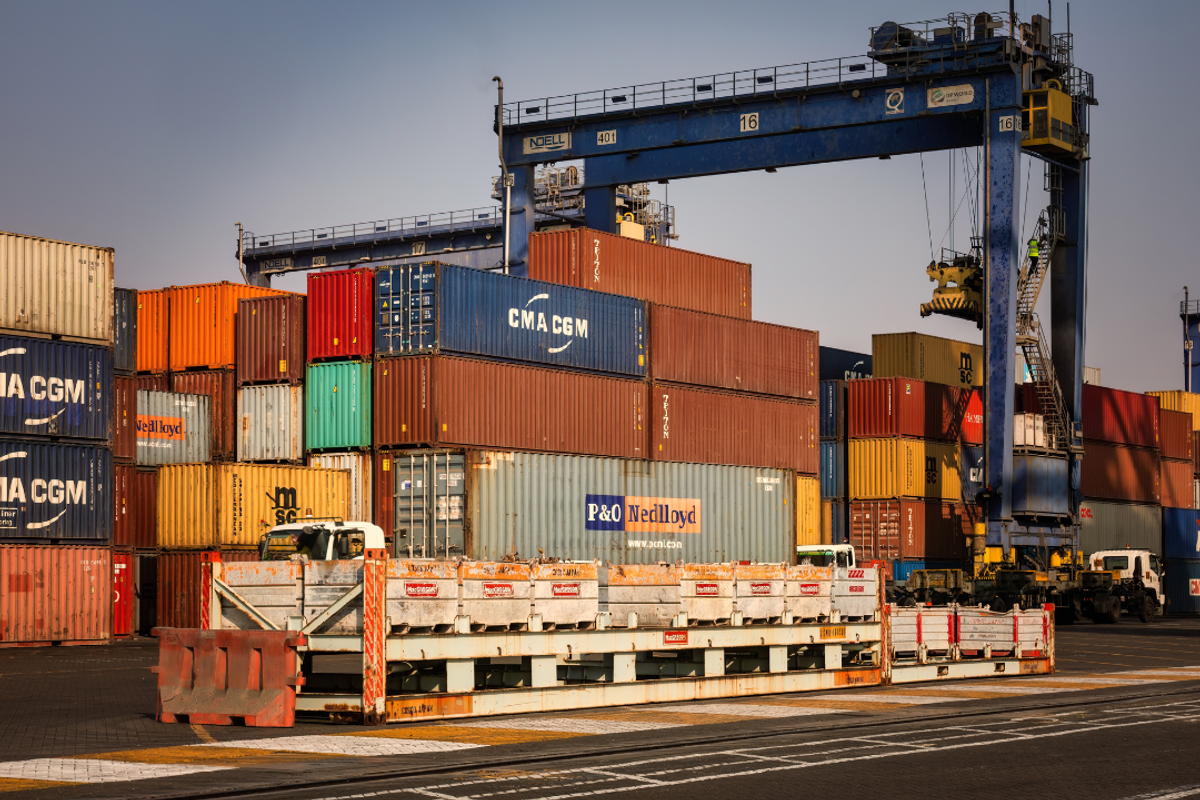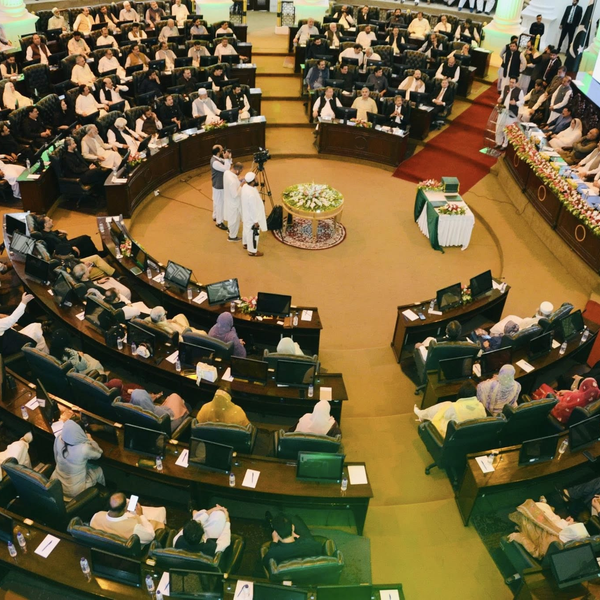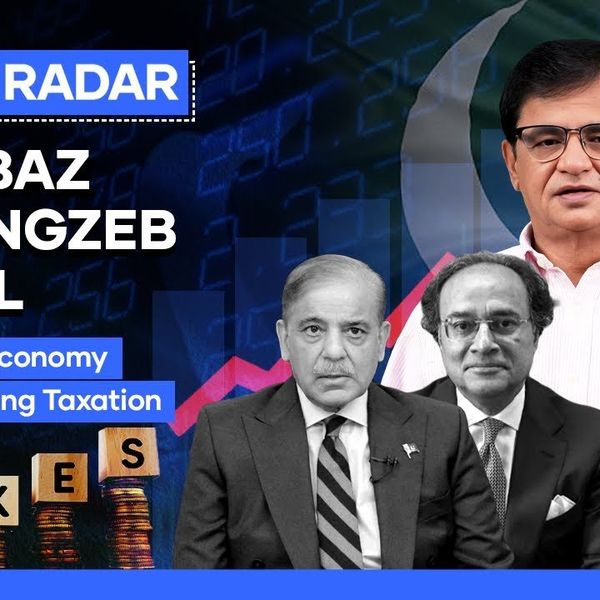Pakistan to reassess export tax regime as finance minister pledges stability and reforms
Aurangzeb said next year’s budget will be drafted by the Tax Policy Office, shifting focus from fiscal targets to economic value
Business Desk
The Business Desk tracks economic trends, market movements, and business developments, offering analysis of both local and global financial news.

Pakistan kept FATA and PATA tax exemptions but added a 10% sales tax, as IT exports rose to $366m and may top $4b this year.
Pakistan’s Finance Minister Muhammad Aurangzeb has announced that the government will undertake a comprehensive review of the transition from the Final Tax Regime (FTR) to the Normal Tax Regime (NTR) in the upcoming federal budget, assuring exporters - particularly the textile sector - that their competitiveness and sustainability will be protected.
Speaking during his visit to the Karachi Chamber of Commerce and Industry (KCCI) on Wednesday, Aurangzeb said the government was fully aware of the challenges facing export-oriented industries and would take corrective steps to strengthen Pakistan’s position in global markets.
The meeting was attended by Advisor to the Finance Minister Khurram Shehzad, DG Tax Policy Office Dr. Najeeb Ahmed Memon, Chairman Businessmen Group (BMG) Zubair Motiwala, KCCI President Rehan Hanif, and senior office bearers from both the ministry and the chamber.
A major announcement from the session was the formal separation of the Tax Policy Office from the Federal Board of Revenue (FBR). Now under the Finance Division, the office will be led by Dr. Najeeb as Director General of Tax Policy.
Aurangzeb said this reform would ensure that next year’s budget is drafted by the Tax Policy Office rather than the FBR, marking a shift toward policy-making guided by economic value rather than fiscal arithmetic. The change, he explained, aims to provide continuity and consistency—key demands of the business community—after years of unpredictable tax policies that have eroded investor confidence.
He assured that the Tax Policy Office team would remain accessible to the business community, academia, and think tanks for regular consultation. “We want to move this country forward through a consultative approach,” Aurangzeb remarked, adding that while not all concerns could be addressed immediately, reform would be an ongoing process.
The finance minister revealed that the Prime Minister had formed eight private-sector-led working groups—without ministers—to develop actionable economic recommendations by November 30. Karachi Chamber, he added, would be part of these consultative groups, recognizing its role as a key voice for Pakistan’s business and industrial community.
Aurangzeb emphasized that every sector of the economy should contribute to exports, however marginally, to enhance competitiveness. He cited the automobile sector’s recent entry into GCC and African markets as a promising sign of diversification. The government, he said, aims to reduce tariffs on raw materials and intermediary goods to lower production costs and revive industrial growth.
Addressing regional taxation concerns, Aurangzeb clarified that while income tax exemptions in FATA and PATA remain intact, a 10% sales tax was introduced this year after careful deliberation. He highlighted Pakistan’s improving performance in several sectors, noting that IT exports reached $366 million in September 2025 and are projected to surpass $4 billion this fiscal year.
He also praised the pharmaceutical industry as a “rising star” and confirmed that the Reko Diq mining project remains on track for financial close by 2028, with expected first-year exports of $2.8 billion—nearly 10% of the country’s current export base.
Business leaders call for energy reforms, IMF engagement
BMG Chairman Zubair Motiwala urged the government to address high gas tariffs and circular debt issues more pragmatically. “Show me one country that sells gas above its cost,” he said, arguing that productivity depends directly on affordable energy. He pointed out that gas costs Rs1,868 per mmbtu but is sold at Rs3,500, calling the policy “irrational.”
Motiwala noted that nearly 47% of gas losses and theft occur in the domestic sector, suggesting Pakistan follow Qatar and Abu Dhabi’s model—limiting pipeline gas to industries and commercial users while shifting households to gas cylinders. This, he said, would help manage circular debt efficiently.
He also urged the government to engage the IMF in a way that promotes export-led repayment capacity. “One million Pakistanis remit $38 billion annually, yet national exports remain stagnant at $32 billion,” he said, calling for direct dialogue between the business community and IMF officials.
According to Motiwala, Pakistan could increase exports by $15 billion within two years if duties on raw materials were reduced and gas tariffs aligned with regional competitors like Bangladesh. “If we lower our cost of doing business, we can compete and thrive,” he asserted.
KCCI president praises recovery, calls for tax review
Earlier, KCCI President Rehan Hanif commended Aurangzeb for stabilizing the economy amid fears of default when he took charge. He pointed to improved indicators including higher foreign exchange reserves, a record stock market, and upgraded international credit ratings. “The situation has improved considerably, though it is still not ideal,” he noted.
Hanif highlighted that industries in FATA and PATA—such as tea and steel—are struggling due to current tax policies. He urged the government to revisit Section 7E of the tax law affecting real estate, warning that capital flight to Dubai and Portugal is accelerating.
He also criticized the impracticality of the e-invoicing system for small businesses and called for user-friendly reforms to SRO 350 and sales tax return mechanisms.
Expressing frustration over stagnant exports, Hanif questioned why every issue is attributed to IMF conditions. “Whenever we approach any ministry, we’re told the IMF doesn’t allow it,” he said. “It seems government institutions use the IMF as an excuse for inaction.”










Comments
See what people are discussing